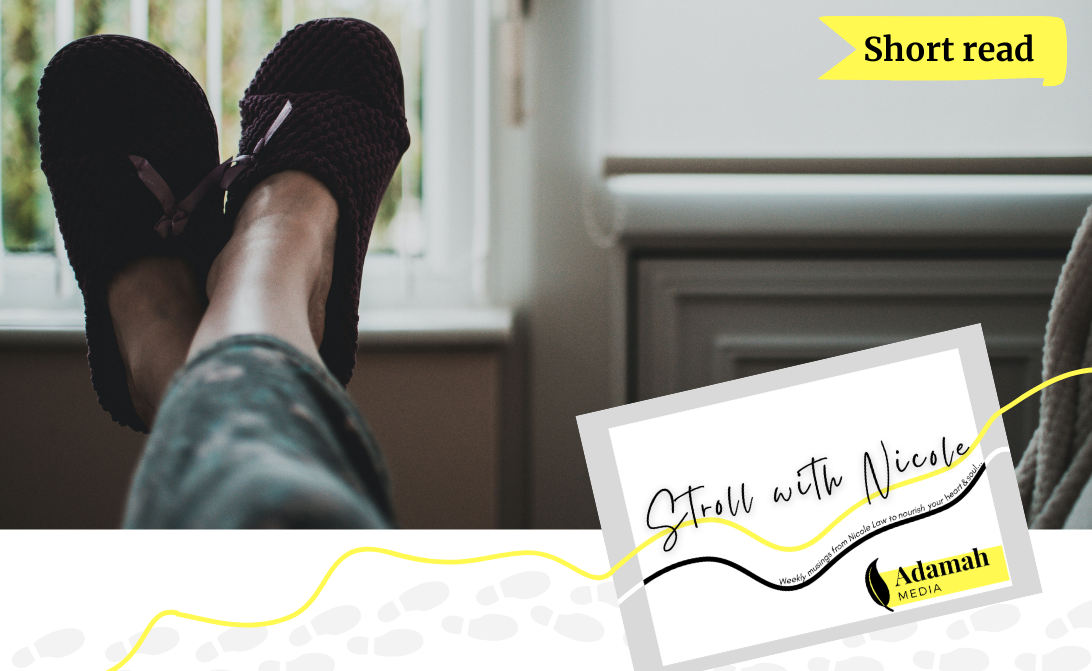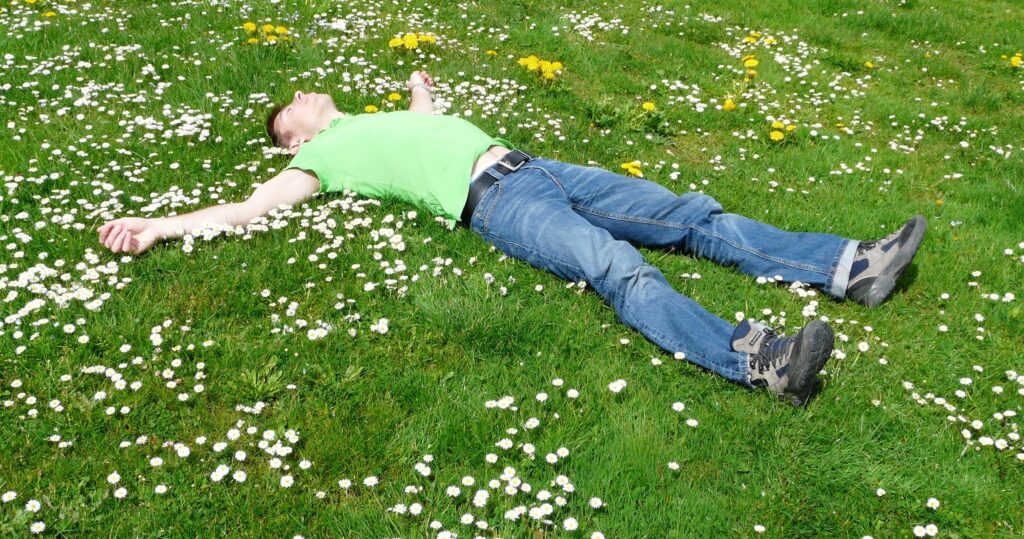
You don’t have to die to rest in peace
Nicole Law discovers the incredible power of rest in a stressful working and emotional life.
We are told that ‘hustling’ is an indicator of success, that working long hours and late nights is something to be proud of. Chronic fatigue has evolved into a badge of honour for some of us as if it were a sign that we are productive members of society. Chugging another Redbull or an extra shot of caffeine almost resembles a rite of passage into a working world where we are chasing deadlines or being literally chased by insistent colleagues.
I am no stranger to the culture of ‘hustle’. When I look at the lives of many of my friends, it’s clear that hustling can create very different outcomes, not all of them positive.
For some, it serves as an impetus to reach their personal objectives, it gives them a sense of purpose and direction, it motivates them to keep pushing through despite the challenges. This is a positive result. Yet, for others, I see only chronic fatigue, listlessness and loss of motivation and the anxiety of worrying that they are not matching expectations. This is when hustling has gone one step too far, and when we have failed to recognise the intrinsic value of rest.

I have experienced both the positive and negative aspects of this culture, having recently suffered chronic exhaustion. Things came to a head when I realised I was struggling with a feeling of fatigue I couldn’t shake off. It had little to do with physical exhaustion, though that also played a role. At the end of a long day, I was devoid of physical energy and hit the sack without much difficulty.
Beyond the physical exertion of juggling many commitments at the same time, my mental and emotional energy was at an all-time low.
Expending emotional energy is particularly difficult for introverts like myself, as we are easily depleted by prolonged social interaction.
That may seem a strange thought, given that we are living through the pandemic era of limited socialisation. But when I added up the hours I was spending on Zoom calls (particularly work or project related) and realised the time spent online was slowly draining me of my energy and enthusiasm, I realised something was wrong.
My mental energy was being sapped by the various forms of content creation I am engaged in on a weekly basis and I realised that even writing poetry was becoming a challenge as I paced the floor endlessly searching for words to write on the page. I decided to delve deeper into this fatigue and to understand how to address it.
According to the physician Saundra Dalton-Smith, “If you’re waking up (after sleeping) and still exhausted, the issue probably isn’t sleep. It’s likely a rest deficit.” This hit the nail on the head! There was a ‘deficit’, a lack of adequate rest, where rest did not necessarily mean sleep.
Sure, sleep is a great idea when one is physically exhausted from the day’s activities – for example, after a long walk in the great outdoors or after a strenuous physical workout. However, rest is a multifaceted aspect of life and cannot only be seen in physical terms; it also includes the dimensions of mental and emotional rest.
Dalton-Smith believes that mental rest is related to concentration while emotional rest is needed for creating quality space for others and engaging in meaningful conversations.

I took some of her advice and switched off my devices, avoided social media and stayed away from my computer for a few days.
I restarted a more regular prayer routine and the mental fog started to clear.
Previously, I was easily anxious about the pace of my progress in work-related tasks and was pushing through despite obvious mental fatigue. I even recall staring at the same page of a book for a full five minutes and not absorbing anything at all. After my self-imposed mental and digital timeout, the words started to flow again, a trickle at first and eventually a steady stream, as I ventured back into poetry writing.
I retreated into a personal hermitage of sorts for a few days, putting a limit to the number of times I checked my phone and muting notifications. I cleared my schedule for a week to focus on deeper reflection and also took time away from ‘creating’. I picked up a few books that had been gathering dust and though the contents sparked many creative ideas, I resisted the urge to start writing a new article or poem and instead simply parked these ideas in a notebook for future exploration.
I don’t deny it was difficult to switch off when one has an overactive mind, but the blank space was very much necessary. I let the words and the natural surroundings envelop me and focussed on being instead of doing for a change.
The time away allowed me to re-centre my thoughts and to refill my personal creative well.
Try it next time you feel stressed … you’ll be amazed at the result.
There is no shame in taking time to rest, in fact it is essential for our mental, physical and emotional well-being. The difficult thing is to first acknowledge that we are in need of this rest and to treat ourselves with kindness.
We should consciously carve out this space for rest and disconnect from whatever is draining us of our energy. God himself rested on the seventh day, the Bible says, after six days of creating the heavens and the earth.
There is a sanctity attached to rest, in not having to be productive all the time.
We need to rest and recharge in order to give to the people in our lives our fullest attention and presence, to give our 100% to the tasks assigned to us, and to live the full life we are meant to live.
Like what you’ve read? Consider supporting the work of Adamah by making a donation and help us keep exploring life’s big (and not so big) issues!
